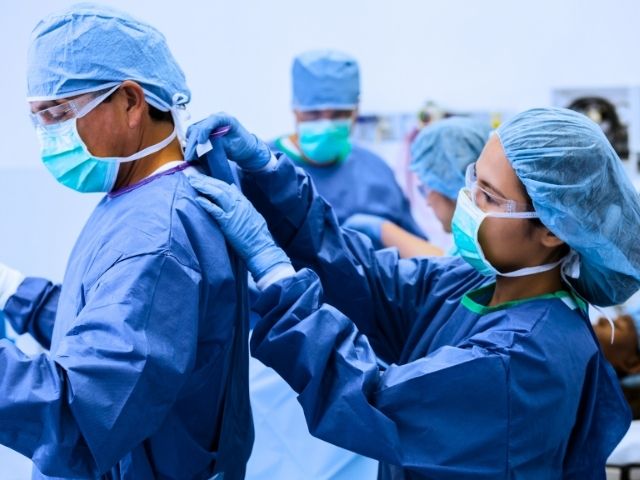Who are the Team Members that Work in an Operating Room?
The operating room (OR) is a complex and highly coordinated environment where various healthcare professionals work together as a team to ensure safe and efficient surgical procedures. Here are some of the key individuals that work in an operating room:
Surgeon
The surgeon is a highly skilled physician who performs the surgical procedure. They are responsible for diagnosing the patient, determining the appropriate surgical approach, and leading the surgical team during the procedure.
Anesthesiologist
The anesthesiologist is a medical doctor who specializes in administering anesthesia to patients before, during, and after surgery. They monitor the patient’s vital signs, manage pain control, and ensure the patient’s safety and comfort are maintained throughout the procedure.
Scrub Nurse
The scrub nurse is responsible for maintaining the sterile field during the surgery. They assist the surgeon by handing sterile instruments, sutures, and supplies. They are knowledgeable about surgical instruments and maintain a vigilant eye on the patient’s safety during the procedure.
Circulating Nurse
The circulating nurse is a registered nurse (RN) who manages the overall nursing care and coordinates activities in the operating room. They ensure patient safety, manage documentation, monitor the surgical environment, and act as a liaison between the surgical team and other areas of the hospital.
Surgical Technologist
Surgical Technologists, also known as surgical techs, work alongside the surgical team to prepare the operating room and assist during surgical procedures. They handle instruments, sterilize equipment, set up surgical trays, and ensure a sterile environment. The surgical techs may also assist with wound closure and patient transport.
Anesthesia Technician
An anesthesia technician assists the anesthesiologist in preparing and maintaining anesthesia equipment. They ensure that the anesthesia machines, monitors, and other devices are functioning properly.
Perfusionist
Perfusionists operate the heart-lung machines during cardiac surgeries. They are responsible for managing blood flow and oxygenation while the patient’s heart is temporarily stopped during cardiac surgery.
Surgical Assistant
A surgical assistant works closely with the surgeon to aid during the surgical procedure. They may suture incisions, assist with exposure, and perform other tasks under the direction of the surgeon.
Sterile Processing Technician
Sterile processing technicians are responsible for cleaning, sterilizing, and maintaining the surgical instruments and equipment.
It is important to note that the specific roles and titles may vary depending on the healthcare institution. While the above roles are common, there may be additional specialized roles or variations in different surgical specialties.









